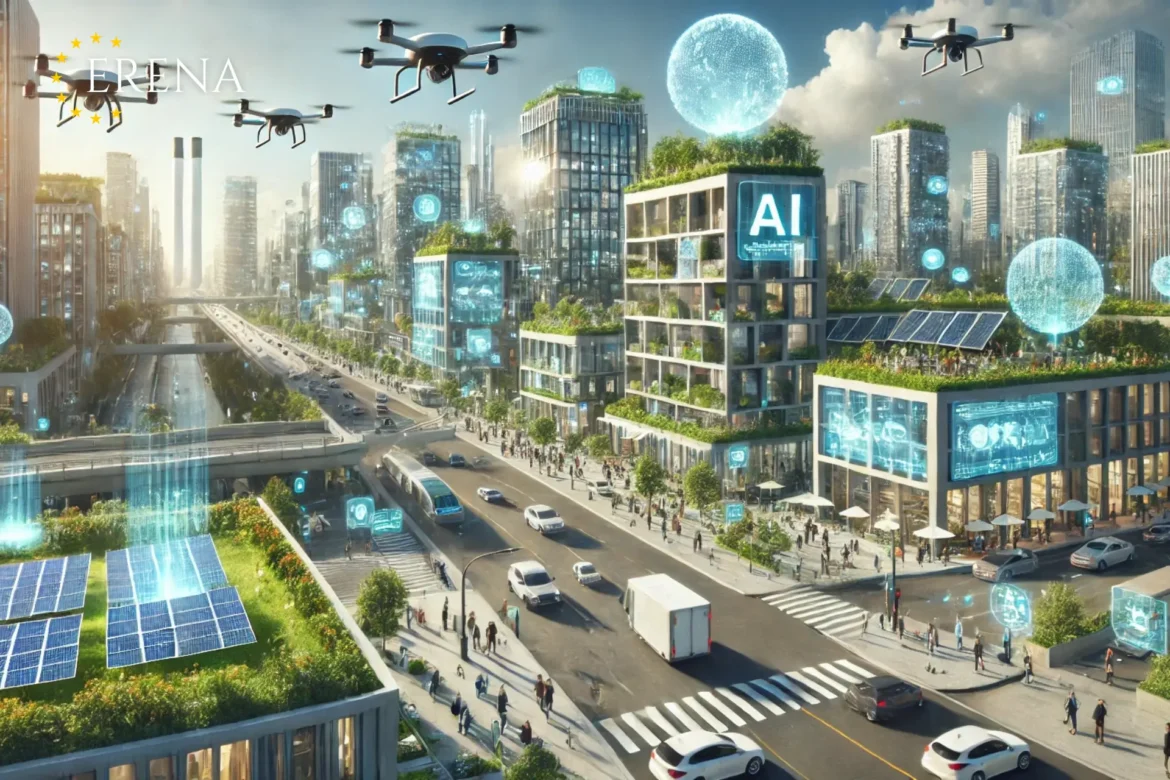717
Artificial intelligence (AI) has become a key driver of transformation in the global economy, and the real estate market is no exception. Today, AI is reshaping how we buy, rent, and manage properties, making processes more efficient, personalized, and transparent. But how far can these changes go? In this article, we’ll explore how artificial intelligence is already being used in real estate and what the future might hold.
1. Market Analysis and Price Forecasting
One of AI’s most significant roles in real estate is data analysis. Previously, studying the market required months of work by analysts, but today, machine learning algorithms can process massive amounts of data in minutes.
AI analyzes factors such as:
•Historical housing prices in specific areas.
•Economic indicators (inflation, unemployment, etc.).
•Migration trends.
•Environmental conditions and infrastructure quality.
Based on this data, AI can predict how property prices might change in the coming years. For example, platforms like Zillow in the United States use artificial intelligence to determine property values in real-time. This simplifies valuation processes and helps buyers and sellers make more informed decisions.
2. Personalized Property Recommendations
For many, searching for a property is a time-consuming and complex task. However, AI significantly simplifies this process. Modern property search platforms, such as Rightmove and Realtor.com, implement AI algorithms that analyze user preferences.
Based on:
•Location.
•Budget.
•Requirements for size, infrastructure, and other criteria.
AI offers personalized recommendations. Moreover, with every new query, the algorithms become more accurate, saving users time and effort.
3. Automating Transactions
Artificial intelligence is revolutionizing the process of closing deals.
Today, we can observe:
•Automated legal review: AI-powered platforms like Contract Express analyze contracts and identify risks faster than human lawyers.
•Cloud-based transaction platforms: Using AI and blockchain technologies, companies like Propy enable contracts to be signed, payments processed, and deals registered entirely online.
In the future, we might see a fully remote property purchase process, allowing buyers to complete transactions within hours, avoiding lengthy paperwork procedures.
4. Property Management
The property management sector is also undergoing significant changes due to AI.
Here are a few examples:
•Smart homes and buildings: AI systems are integrated into residential complexes and offices, managing energy consumption, climate control, security, and even cleaning. Devices like Google Nest and Amazon Alexa have become the standard in modern homes.
•Maintenance prediction: AI monitors building conditions and predicts when repairs are needed. This allows property owners to minimize costs and prevent serious problems.
In the future, this technology may evolve to a level where buildings become fully autonomous, making operational decisions on their own.
5. Marketing Technologies
Artificial intelligence has changed the way real estate is promoted. Marketers use AI to:
•Analyze target audiences.
•Create personalized advertising.
•Automate content creation, such as property descriptions.
For example, natural language processing (NLP) algorithms allow tailored property listings that align with individual user interests. This makes marketing campaigns more effective and cost-efficient.
6. Virtual Tours and Augmented Reality
Another significant innovation is the adoption of virtual and augmented reality (VR and AR) technologies, powered by AI.
•Virtual tours: Buyers can “visit” a home or apartment without leaving their house. AI analyzes their reactions and suggests similar options.
•Augmented reality: AR enables buyers to visualize how furniture or renovations would look in a specific property.
These technologies are already popular in premium real estate markets and are gradually becoming accessible to broader audiences.
7. Future Prospects
AI will continue to transform the real estate market. Here are a few predictions:
1.Smart cities: Artificial intelligence will become the backbone of entire city infrastructures, managing transportation, energy, and water to ensure comfortable living.
2.Real estate in the metaverse: Virtual properties are becoming a new trend. Platforms like Decentraland already allow people to purchase virtual land. In the future, AI will play a crucial role in evaluating and managing these assets.
3.Fully diagnostic homes: Homes of the future will feature AI systems that monitor residents’ health, conserve resources, and adapt to their habits.
4.More precise market predictions: Algorithms will become so accurate that they can forecast not only prices but also buyer preferences, shaping new real estate trends.
8. Challenges and Risks
However, the integration of AI also brings certain risks:
•Data privacy: To deliver personalized experiences, AI requires access to large volumes of data. Privacy concerns are becoming increasingly important.
•Decision-making independence: Full automation of transactions and management could lead to over-reliance on technology.
•Accessibility for all: New technologies are often unavailable to the mass market, creating a gap between premium and affordable housing sectors.
Companies and governments must address these challenges to ensure AI is used safely and benefits all market participants.
Conclusion
Artificial intelligence has already changed the real estate market, making it more technological and convenient. From data analysis to smart building management, AI is finding applications at every stage, transforming real estate into an innovative and high-tech sector.
The future promises even more changes: the emergence of smart cities, virtual real estate, and autonomous homes. However, it’s crucial to consider the challenges to ensure that AI benefits not only industry professionals but also everyday people, making housing more accessible, comfortable, and secure.

